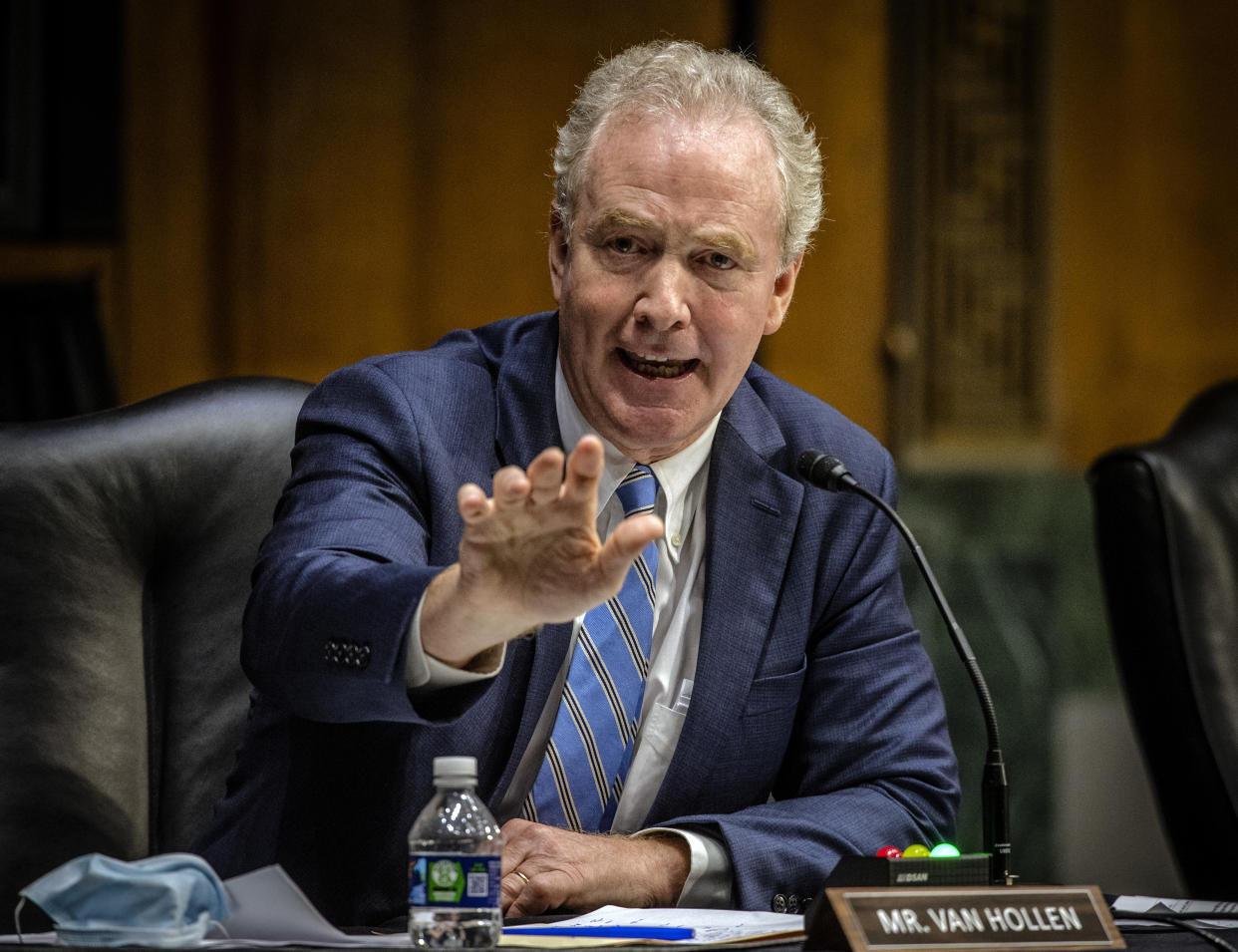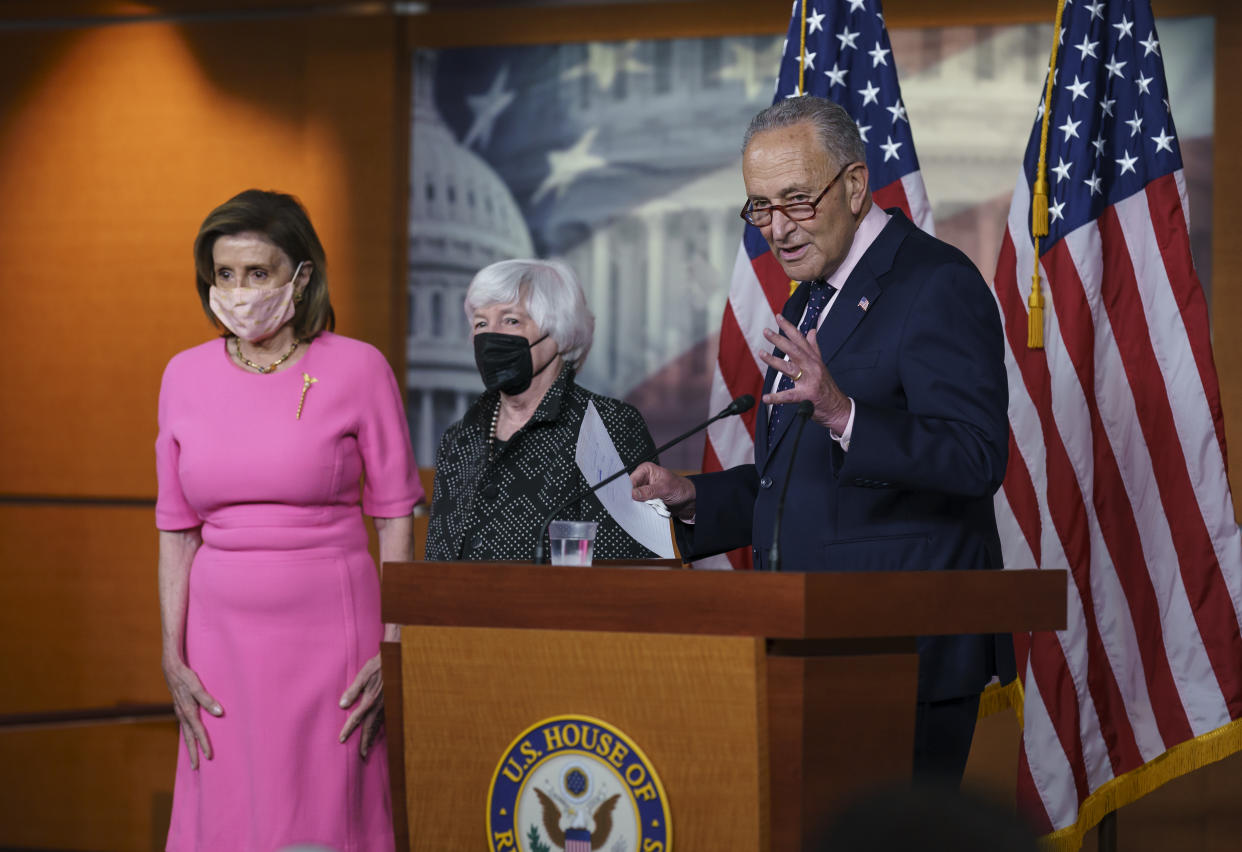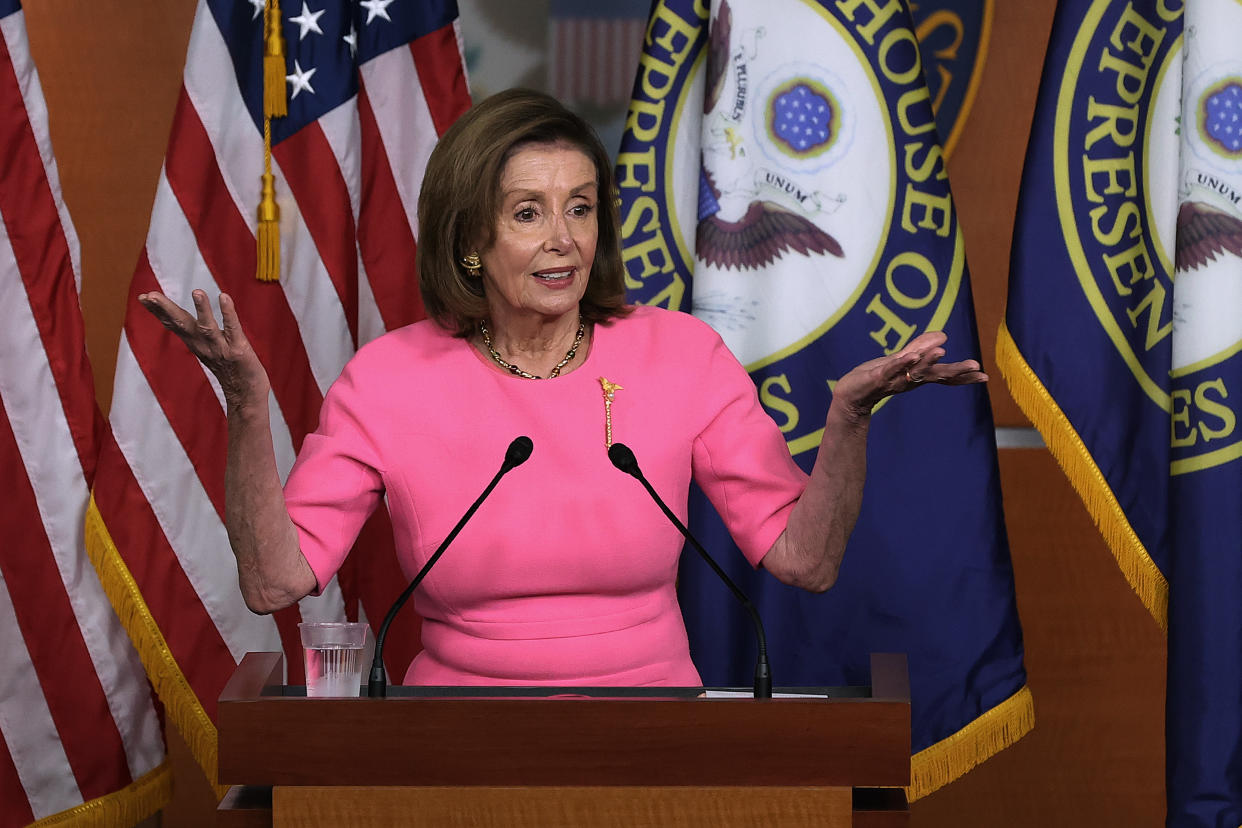Will Democrats squander their biggest opportunity to reshape the country in decades?
The Democratic Party faces a reckoning over the next few days: Will it be able to solve fierce internal disagreements and finalize deals on new infrastructure spending and a massive expansion of the nation’s social safety net –– or will it fumble its biggest opportunity in decades to meaningfully change the country?
There are four potential scenarios for how the next few days will play out.
Most optimistic: Democrats reach an agreement by Monday on a $3.5 trillion budget deal to come in a few weeks or months, which in turn brings the party together and allows the House to pass the $1 trillion bipartisan infrastructure bill that’s slated for a vote early next week.
Less optimistic: Democrats can’t reach an agreement on the budget Monday but are so close that all the parties involved in negotiations agree to push the infrastructure vote back by a few days, and then pass it.
Even less optimistic: Democrats have to push voting on the infrastructure bill back by two to three weeks, as Rep. Pramila Jayapal, D-Wash., called for on Thursday morning.
Least optimistic: Democrats hold the vote on infrastructure, but it fails due to infighting, and they are left to pick up the pieces.

Democrats who spoke to Yahoo News were cautiously confident — despite the high stakes and the sometimes chaotic feel on Capitol Hill — that they will ultimately unite to pass the infrastructure deal and the larger budget.
“I said several months ago that even for those of us who had been in the House or Senate for quite some time, this September and October were going to be some of the most intense we’ve experienced, and everybody should be prepared to put on their heat shield,” Sen. Chris Van Hollen, D-Md., told Yahoo News in an interview.
“I think this kind of intensity and turbulence is not surprising, but I should hasten to add that it needs to be resolved now,” Van Hollen, who was a member of the Democratic House leadership before he was elected to the Senate in 2016, said.
“Things are coming to a head in the House next week, and there’s no more room for error. This is the moment where people have to sit down and come to an agreement.”
The Democrats’ confidence is rooted in the belief that their party ultimately still believes in the federal government and its ability to help people, whereas broad swaths of the GOP see it as a hopelessly dysfunctional money pit, or even as a malignant influence on American life.

“There’s no faction [in the Democratic Party] that hates government,” Nadeam Elshami, a former chief of staff to House Speaker Nancy Pelosi, D-CA, said in an interview. “There’s so much at stake. They will find a way. That’s my genuine feeling. Nobody’s saying, ‘I’m not going to vote for anything.’”
The key sticking point is that progressives in Democratic Party say they won’t support infrastructure until the bigger budget bill is passed as well. That budget bill, currently pegged at $3.5 trillion, includes a host of progressive priorities, from continuing the child tax credits that began going out to most families this past summer, to expanding Medicare, introducing universal pre-kindergarten, bringing down prescription drug prices, and fighting climate change.
Democrats say they will pay for much of the spending by raising $2 trillion in taxes on wealthy individuals and large corporations. Senate Majority Leader Chuck Schumer, D-N.Y., said Thursday morning that the Biden White House and Democrats in Congress had reached an agreement on how the new spending would be paid for.
Biden brought different Democratic factions to the White House on Wednesday to try to resolve the disagreements. Pelosi has said the House will vote on infrastructure this coming Monday or Tuesday, so clearly, Biden, Pelosi and Schumer are hoping they can persuade progressives to move ahead with infrastructure by getting an agreement on the budget bill that will allay concerns among progressives.

“I’ve been urging the president to bring people down to the White House and knock some heads,” Van Hollen said.
Here’s a closer look at how each of these three scenarios might play out.
In the most optimistic scenario, Pelosi and her lieutenants are able to convince moderate and progressive Democrats in the House to compromise and reach a deal by Monday.
The roadblocks are significant. Moderates like Sen. Joe Manchin, D-W.Va., Sen. Kirsten Sinema, D-Ariz., and their counterparts in the House like Rep. Josh Gottheimer, D-N.J., and Rep. Stephanie Murphy, D-Fla., have yet to agree to support the budget bill. In response, progressives in the House and Senate have said they won’t support the infrastructure bill until there is a budget deal.
John Podesta, a veteran Democratic political operative, said in a memo to Democrats on Wednesday that progressives should be prepared to accept a budget that costs less than $3.5 trillion, and also told moderates it was time to get down to brass tacks on the budget bill, and find something to support.

“You are either getting both bills or neither — and the prospect of neither is unconscionable,” he said. “It would signal a complete and utter failure of our democratic duty, and a reckless abdication of our responsibility. It would define our generation’s history and show that, when our time came, we failed, both for Americans now and in the years to come.”
In the second and less optimistic scenario, Biden, Pelosi and Schumer are unable to get their sides to reach a deal by Monday, but everyone feels they are close enough to agree to simply push the infrastructure vote back a few days.
This may be the most likely scenario, given the compressed time schedule. But there is a lot of pressure to move quickly, because of other major factors. A looming government shutdown also needs to be addressed. Some time in the next four to six weeks, the U.S. government will begin defaulting on its debts if the country’s debt limit is not raised by Congress. This adds another major wrinkle to the budget negotiations.
In the third and even less optimistic scenario, the infrastructure bill is delayed by weeks instead of days. Jayapal, the chair of the House Progressive Caucus, said Thursday on MSNBC that the Monday infrastructure deadline is an “arbitrary date,” and that the vote should be pushed back by two to three weeks so that an agreement on the budget bill can be reached.

And in the fourth and least optimistic scenario, Pelosi pushes ahead with the infrastructure bill next Monday knowing it’s likely to fail, and it does. Her strategy in such a scenario, according to Democrats on Capitol Hill, would be to shock the members of her party and let them see and feel the fallout, in the hope that it motivates them to finally come together and rescue Biden’s domestic agenda before it’s too late.
But in a press conference Thursday morning, Pelosi expressed confidence that the necessary deals would be made.
“We take it one day at a time, but I’m confident we will pass both bills,” she said. “I think we’re in a very good place. I’ve always been very calm about this. It always happens the same way: All this bluster ... but at the end of the day, we will be unified.”
____
Read more from Yahoo News:
